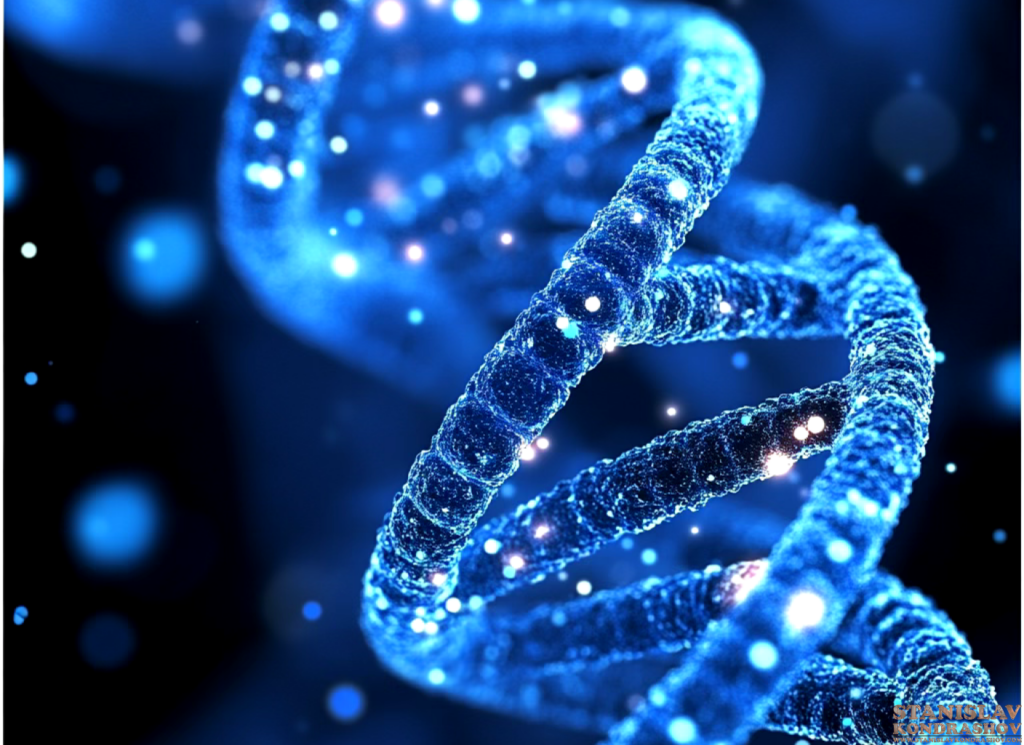Artificial Intelligence (AI) is transforming numerous industries, but one of its most revolutionary impacts is in the field of genetic research. Genetics holds the key to understanding the blueprint of human health, and AI is accelerating this journey by making sense of the vast amounts of data our genes generate. From diagnosing diseases to predicting health outcomes, AI is helping researchers and clinicians decode the mysteries of DNA, unlocking the potential for more personalized healthcare and transformative breakthroughs in medicine.

AI’s Role in Genomic Data Analysis
The human genome is incredibly complex, containing over 3 billion base pairs of DNA. Each person’s genetic makeup is unique, which explains why individuals respond differently to treatments or are more susceptible to certain diseases. AI is particularly valuable in making sense of this enormous amount of genetic data, identifying patterns and correlations that would be impossible for humans to process manually.
Machine learning algorithms can quickly analyze genetic sequences, detect mutations, and predict which genes are associated with specific diseases. This is especially helpful in the field of cancer research, where AI tools can detect genetic abnormalities linked to different types of cancer, enabling earlier diagnosis and more targeted treatment options.
Precision Medicine: Tailoring Treatments to Individual Genetics
One of the most exciting applications of AI in genetic research is in the field of precision medicine. Unlike the traditional “one-size-fits-all” approach to healthcare, precision medicine tailors treatments to a patient’s unique genetic profile. AI is at the core of this approach, using algorithms to analyze a person’s genetic, environmental, and lifestyle data to predict how they will respond to different treatments.
For example, AI can analyze genetic markers to determine how a patient metabolizes certain medications, allowing doctors to prescribe the most effective drugs with the fewest side effects. This personalized approach is already showing promise in treating conditions like cancer, heart disease, and rare genetic disorders.

AI-Powered Gene Editing: The Future of Therapeutics
AI is also revolutionizing gene editing technologies like CRISPR, which allow scientists to precisely alter DNA sequences. AI algorithms can predict the outcomes of gene editing with greater accuracy, minimizing the risk of off-target effects. By enhancing the precision of these technologies, AI is making it possible to correct genetic mutations that cause diseases, opening the door to treatments for conditions that were previously considered untreatable.
Moreover, AI can help prioritize which genetic mutations to target in large-scale gene-editing projects. As researchers work to understand the functions of thousands of genes, AI can sift through the data and identify the most promising candidates for therapeutic intervention. This accelerates the pace of research and brings us closer to effective gene-based therapies.
Understanding Genetic Predispositions
Another vital contribution of AI in genetic research is its ability to assess genetic predispositions to various diseases. By analyzing large datasets of genetic information alongside clinical data, AI can predict an individual’s risk for diseases like diabetes, Alzheimer’s, or heart disease. These insights allow for early intervention, empowering patients to take preventative measures before symptoms even appear.
AI’s predictive capabilities go beyond individual health—on a larger scale, it can help public health officials identify at-risk populations, enabling more effective healthcare policies and resource allocation.
Accelerating Genetic Discoveries
The pace at which genetic discoveries are made is increasing thanks to AI’s ability to quickly process and analyze vast amounts of genomic data. AI can compare millions of genomes in record time, identify new gene-disease associations, and highlight previously unnoticed genetic mutations. This is especially valuable in the study of rare diseases, where small sample sizes make it difficult for researchers to find meaningful patterns. AI helps unlock the potential of small data sets, speeding up the discovery of disease mechanisms and possible treatments.
In drug discovery, AI is helping pharmaceutical companies to identify new drug targets based on genetic insights. By understanding how specific genes influence disease progression, AI can suggest novel approaches to drug development that would have otherwise been overlooked.

Challenges and Ethical Considerations
Despite its incredible potential, the use of AI in genetic research also raises several challenges and ethical considerations. For one, genetic data is highly personal, and there are significant concerns around data privacy and security. It’s essential for researchers and clinicians to ensure that this sensitive information is protected from misuse or unauthorized access.
There is also the issue of bias. If the genetic data fed into AI systems is not representative of diverse populations, the insights generated may not apply to everyone, leading to unequal healthcare outcomes. Efforts must be made to ensure that AI systems are trained on diverse and inclusive datasets.
Lastly, as AI continues to play a larger role in genetic research, it’s important to strike a balance between technological innovation and human oversight. While AI can process data at an unprecedented scale, human expertise is still needed to interpret and apply these findings in clinical settings.
The Future of AI and Genetics
The combination of AI and genetic research is already revolutionizing our understanding of human health, and we are only scratching the surface of its potential. As AI technologies continue to advance, they will unlock even more insights from our genetic code, leading to breakthroughs in disease prevention, treatment, and even cure.
From personalized medicine to gene editing, AI is poised to transform how we approach healthcare, making it more tailored, precise, and effective. The future of health is in our genes, and AI is the key to unlocking it.
By Stanislav Kondrashov



